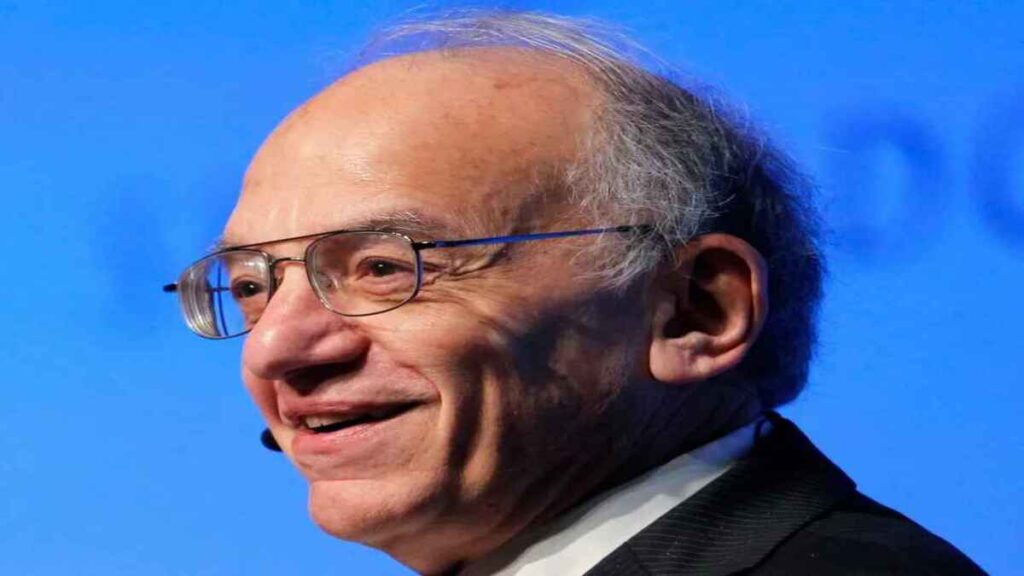
Finance professor Joao Gomes from the Wharton Business School is sounding the alarm about America’s ballooning public debt, a warning that’s gaining traction amidst a chorus of concern from Wall Street to Washington.
As a prominent figure in academia, Gomes is leveraging his platform to urge policymakers and presidential candidates to confront the looming fiscal crisis.
Gomes predicts that the United States’ staggering $34 trillion debt burden could trigger a financial market upheaval, especially if future administrations implement costly policies without addressing the underlying debt issue.
Drawing parallels to past economic crises, Gomes warns of the potential for interest rates to skyrocket, reminiscent of the UK’s mortgage meltdown under Prime Minister Liz Truss.
ALSO READ: President Liz Magill May Lose Her Seat at Penn As Wharton Board Wades In On Antisemitism Controversy
The gravity of the situation is underscored by voices across the political spectrum, with prominent figures like JPMorgan Chase CEO Jamie Dimon and Black Swan author Nassim Taleb echoing concerns about America’s fiscal trajectory.
Despite mounting warnings, Gomes acknowledges the reluctance of politicians to prioritize fiscal responsibility in their policy agendas, highlighting the bipartisan nature of the problem.
While the origins of the debt crisis may be complex, Gomes stresses that both parties bear responsibility for addressing it. With deficits soaring under successive administrations, the need for decisive action is urgent. Failure to act could have dire consequences, potentially derailing the next administration and precipitating a full-blown financial crisis by 2025.
The looming debt crisis has far-reaching implications, not only for the United States but also for the global economy. Foreign investors, including major economies like Japan and China, hold significant portions of US debt, making them vulnerable to market volatility.
Should investors lose confidence in US debt, the repercussions could be severe, with ripple effects felt across borders. As policymakers grapple with the daunting task of addressing the debt crisis, Gomes emphasizes the importance of responsible budgeting and economic growth.
POLL—Should the Government Increase Taxes on the Wealthy To Reduce Economic Inequality?
While there are no easy solutions, Gomes believes that prudent fiscal policies and sustained economic expansion offer the best chance of averting disaster. In the face of mounting uncertainty, individuals and governments alike must prepare for the possibility of a financial reckoning.
Whether it’s mortgages or loans, the impact of a debt-induced crisis would be felt far and wide. As Gomes warns, the time to act is now to avoid the potentially catastrophic consequences of unchecked debt accumulation.
Looking ahead, Gomes cautions that the signs of a looming debt crisis are becoming increasingly difficult to ignore. At a policy level, he believes that the moment of reckoning will come when investors begin to question the sustainability of the current debt model.
This could be triggered by government policies that further exacerbate the debt burden, sparking a market reaction that sends shockwaves through the global economy. The international community is also closely watching America’s debt trajectory, with foreign nations holding trillions of dollars in US debt securities.
If confidence in US debt wanes, these countries could begin divesting from US treasuries, further exacerbating the crisis. Gomes points to the example of Japan, which owns over a trillion dollars in US debt, as particularly vulnerable to market disruptions.
ALSO READ: 14-Time Lottery Winner and Mathematician Shares Tips to Hack the System
In response to these challenges, Gomes advocates for a combination of responsible budgeting and economic stimulus to spur growth and alleviate the debt burden. However, he warns that drastic cuts to government spending could lead to social unrest, presenting policymakers with a delicate balancing act.
Ultimately, the fate of America’s economy rests in the hands of its leaders, who must navigate the complex challenges posed by mounting debt levels. As Gomes concludes, the time for action is now, before the debt crisis reaches a point of no return.
Failure to address the issue could have catastrophic consequences for the nation and the world at large, making it imperative for policymakers to act decisively and responsibly.
You Might Also Like:
ABC News President Slams Trump Over “Racist” Black People Comments
Health Experts Worry as Florida Surgeon General Defies CDC Recommendations Amid Measles Outbreaks
Drake Honors Mother-Daughter Duo Who Died in an Accident After Attending His Show
California Governor Signs Bill That May Affect the State’s Fast Food Industry
These Are Some of the Most Dangerous Places in the World
